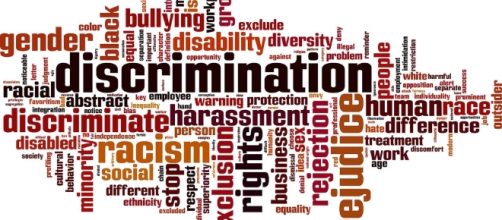Islamophobia, homophobia, and xenophobia are all terms used to describe hate or discriminatory behaviour. After the Brexit vote, there has seen a significant rise of hate crimes. These behaviours are abhorrent however, the terminology itself is highly misleading. Why are they called phobias and what do they have to do with fears? A brief exploration of their meanings may shed some light.
Islamophobia, dislike of or prejudice against Muslims, especially as a political force. Homophobia, dislike or prejudice against homosexual people. Xenophobia, dislike of or prejudice against people from other countries.
A Phobia is a type of anxiety disorder, normally defined as a persistent fear of an object or situation that is typically disproportionate to the actual danger.
Defining a phobia
The aforementioned are the definitions of each phobia that have been mentioned and the definition of the word ‘phobia’ itself. These definitions are to be kept in mind because as it has been pointed out many times on social media, that homophobia for example, is not a phobia because they aren’t innately fearful of those who are homosexual, just intolerant of something natural.
These apparent phobias are all too often rife within society and the reason why is still a relative mystery, most likely to with the unknown and lack of understanding.
The unknown and lack of understanding is often the reason for many fears, not so much phobias because as previously explained, it is a form of anxiety disorder. This is why islamophobia, xenophobia and homophobia shouldn’t be classed as phobias, because they aren’t a reaction to some kind of anxiety just dislike and prejudices towards a group with no reason.
Phobias or hate?
You could argue that they are phobias because as the definition of phobia states that it is ‘a persistent fear of an object or situation disproportionate to the actual danger’. There is some truth in this because those who dislike either of those phobias, cannot understand that there is no real reason to hate or fear someone for who they are and their beliefs.
But if their views get aired it creates this sense of empowerment and it will give a sense of acceptance to anyone who may agree even if it is negative publicity. The general feeling and notion would arise, that they aren’t the only ones and ‘mob mentality’.
There is one argument that could class them as phobias, since a lot of people lack understanding and it is unknown. This could be the instinctive fear of the unknown. However, this is unlikely and the behaviour is inexcusable within society. By giving it a name with the term phobia, allows the idea to become acceptable by those with views of this nature. It creates a sense of systemic acceptance and that even though it is morally unacceptable, those with those views don’t feel like they should feel any remorse for their actions.
Empowerment and ignorance
Giving attention to those with these kind of views gives them a sense of empowerment and airing them will give rise to those kind of views, even though it could be negative publicity. The reason why they should never be classed as phobias is because it helps to cement the idea that these views are acceptable by those who hold them.
Even though they are morally unacceptable especially within an increasingly globalised society, it helps give them a real platform within that society. To combat this sort of behaviour would be to ignore and condemn those who do air these kind of views.
This also takes away from what real phobias are as they aren’t just a fear of something, they are a genuine anxiety disorder that can only be overcome/helped through support.
As a society we must rise to this kind of hate, we must also condemn our government for their part in the rise of hate crimes. We must all unite against these ideals and not allow them to play a part in the social cohesion of our society.

